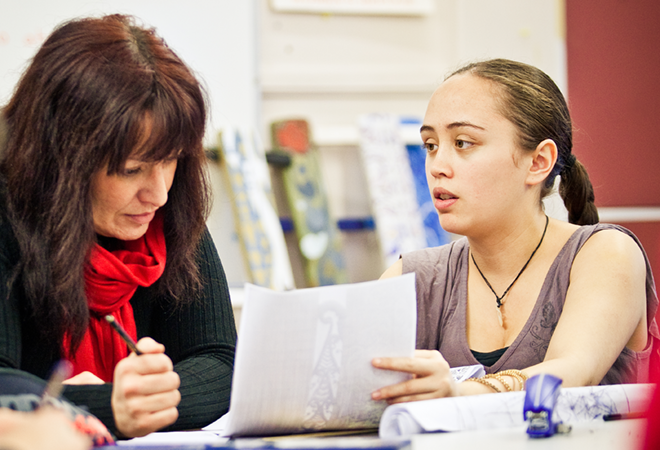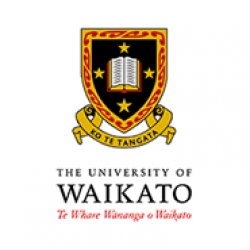
Kia Matatau ki te Reo: Factors Influencing the Development of Proficiency in te reo Māori with Adult Learners
Status
Completed: 1 January 2013
Project Details
A doctoral thesis completed in 2013, undertaken by Matiu Rātima, University of Waikato, to investigate the factors that help or hinder adult Māori second language learners to become proficient speakers of te reo Māori.
Aims:
The main aims of the research were to:
- examine the success factors that enhance Māori adults learning Māori as a second language
- identify how to best support adults learning te reo, and also inform efforts to revitalise the Māori language in Aotearoa
- examine what kind of concerted effort is needed and how can individual learners optimise their efforts to learn te reo.
Methodology:
A mixed methods approach was used involving:
- a review of the literature from the three research fields (adult second language acquisition, teaching pedagogy and language revitalisation)
- quantitative measures of language competency
- in-depth interviews with 17 highly proficient second language speakers of te reo who all learned te reo as adults.
Team

Matiu Rātima
The University of WaikatoStatus
Funding
$75,000.00 (excl GST)
Key Findings
The key findings from the research included:
- The study found several common attributes shared by the participants: a strong and positive sense of themselves as Māori; their ability to establish and maintain supportive relationships with other Māori speakers; their desire to serve whānau, hapū, iwi and their communities; and the ability to transfer skills from some other aspect of their lives where they had experienced success.
- Since learning is change, the motivation to learn te reo is likely to change over time. Change occurred as participants’ knowledge and understanding of te reo and tikanga Māori developed. What began for some as an exercise in following their own interests and passions became a desire to contribute to the revitalisation of te reo Māori and to the survival of Māori people as Māori, in a cultural and spiritual sense.
- The research developed the social service theory as a means of understanding the participants’ motivations to take up and to persist with learning te reo over the course of years of study. Put simply social service theory holds that when learners can see learning te reo will empower them to be better able to serve their whānau, hapū, iwi and other Māori communities, they will better engage in opportunities for learning and increasing their proficiency in te reo Māori.
- Current theories of motivation in the existing Second Language Acquisition (SLA) literature do not address Māori experiences of language learning. The ‘social service theory’ better accounts for the participants’ motivations to learn.
- In the broadest sense, the personal characteristics, the learning strategies, and the attributes of effective teachers discussed here have much in common with other second language learners and their experiences from the literature. The differences lay in the specific social cultural and historical context of the learning. For example, Māori have unique reasons for being passionate about te reo. As a colonised indigenous minority, they have a sense of reclaiming ownership of te reo.
- To become highly proficient in te reo Māori, participants have said that students must be open and committed to cultural transformation. Teachers must be equally committed to student success and to constantly seeking ways to help bring about cultural transformation in the learner.
Key Recommendations
The key recommendations and implications from the research included:
Teacher characteristics | Participants on this study gave a strong message for te reo Māori teachers; that the best teachers are not only pedagogically adept, they also understand and live by tikanga Māori. There is scope here to inform programmes of professional development for te reo Māori teachers to integrate pedagogical professional development with the teachers own personal and cultural development.
Becoming a proficient speaker of te reo | The imperative to know one’s Māoritanga is a powerful motivator, but this depends on students seeing te reo as the only pathway to te ao Māori (the Māori world). For these participants learning te reo is a form of personal growth and public service. It is as much a spiritual pursuit as an intellectual one. Learners must have faith. When the learner truly believes in the power of te reo Māori as the only path to Māoritanga, they will act with the courage of that conviction. They will have the fortitude to make the journey and become a proficient speaker of te reo.
Relationship building | Students and teachers must understand how important relationship building and maintenance is for language development. Students must commit fully to the endeavour. The teacher should provide students with opportunities to bring their social capital into the classroom. Teachers must strive to foster an inside and outside of class environment conducive to students forming good relationships with one another, with themselves, and with others beyond the classroom environment.
Extending the research methodology | Extending the research methodology and questions into cohorts of other successful indigenous second language learners (of Hawaiian, of Welsh, or of Navajo for example) could make a worthy contribution to the efforts of indigenous peoples in other parts of the world to revitalise and maintain their languages. Do the findings from this study hold true in other indigenous language learning contexts? How do other contexts differ from the Māori situation? And how can the findings from this study benefit the efforts of the global movement to revitalise indigenous languages and reverse language shift?
Survival of te reo | Te reo must survive because, as Sir James Henare put it, “ko te reo te hā o te Māoritanga”, meaning “the language is the essence of Māori culture”. Without te reo the very survival of Māori people as Māori is in doubt.
A doctoral thesis prepared by Matiu Rātima.
(PDF, 2.49 MB, 303-pages).
- 1 January 2013